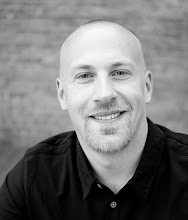Christianity, Politics, and Faithfully Engaging in the Process
Christians' retreat from American politics would be a mistake, argues Michael Gerson, against those who prefer more behind-the-scenes forms of cultural engagement. As President George W. Bush's speechwriter for five years, and now as senior research fellow at the Institute for Global Engagement, Gerson has seen first-hand how policy has tangible cultural effects. Gerson recently co-authored City of Man: Religion and Politics in a New Era(Moody) with Peter Wehner and began a one-year fellowship with the ONE Campaign, the Bono-backed nonprofit devoted to funding international aid programs. Gerson will be working on the campaign's religious and conservative coalition on development, disease, and trade issues. "I am not, however, in charge of distributing U2 tickets," he says.
Gerson spoke with CT online editor Sarah Pulliam Bailey about why Christians should remain vigorously engaged in the political sphere.
You gently critique the Religious Right, saying, "The biggest problem with the Religious Right has not been tonal or strategic but rather theological." Could you flesh that out? How might Christians approach politics differently?
We are in a moment of transition. There's a discontent with an older model of social engagement. One reason is tonal. The Religious Right reacted to the aggressions of modernity, to the impression that leading institutions were imposing an alien vision on American society. Its fundraising appeals presented politics through the prism of a bitter divide. It was the children of light against the children of darkness.
Another element is political and strategic. Because it brought many moral concerns to public life, the Religious Right became an appendage of another political ideology: the Republican Party. So you would see voter guides that were not only on moral issues but also on tax policy and missile defense. I am a conservative, but I think the Christian faith stands in judgment of all political ideologies. When it's too closely identified with any of them, it becomes a tool in someone else's power game.
The third element is theological. After 9/11, when Jerry Falwell and Pat Robertson publicly blamed the suffering of the American people on various American sins, they left out other sins: exploitation of the poor, pride, and vanity. When an American religious leader says that Orlando might be destroyed because of Gay Day, and a hurricane hits Disney World on Gay Day, it seems cruel rather than compassionate.
The book also addresses the underestimated virtues of the Religious Right. The movement led conservative Christians back into social engagement after a period in the wilderness, and it raised issues about the value of human life and the importance of traditional values and family. (read the rest of the interview)
Labels: Christian Pastors and Leaders, Ethics, Evangelical, Faith and Politics, Worldview


0 Comments:
Post a Comment
Subscribe to Post Comments [Atom]
<< Home